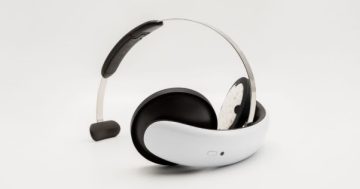Prakriti Poddar says work stress can be exhausting, both mentally and physically. She suggests ways to strike a work-life balance.
 Increasing job uncertainty, gruelling work hours and an abject lack of work-life balance implies that incidence of professional stress is very high.
Increasing job uncertainty, gruelling work hours and an abject lack of work-life balance implies that incidence of professional stress is very high.
The rapidly changing nature of jobs, 24/7 connectivity and the resultant pressure of constant deadlines means many young professionals struggle to maintain a mental balance.
Rates of burnout or exhaustion syndrome are high among bright professionals who fail to reach their full potential because stress gets the better of them on their way to success.
A number of corporate organisations have realised the negative impact stress is having on their employee productivity, and holistic wellness programs have gained much traction.
However, it is also important to educate people at individual levels on how to cope with stress on a daily basis.
While we cannot change the stressors that we encounter every day, we can most certainly change the way our mind deals with them.
A number of alternative therapies can help individuals achieve better mental health and wellness. These therapies can be adopted as coping mechanisms for the mind.
One study has concluded that yoga, mindfulness-based cognitive therapy and cognitive behavioural therapy are all effective in promoting overall mental health.
Yoga and meditation are widely known to induce benefits for mental health including stress management.
The practice combines the physical and mental disciplines to help achieve a peaceful alignment between the body and mind.
When combined with meditation, yoga relaxes and soothes the nerves, aligns the mind towards a calm centre, and helps an individual become more mindful of the present.
Yoga doesn’t just help in stress management, it also helps curtail the negative impact of stress on the body and reduces risk factors for chronic conditions, such as heart disease and high blood pressure.
It modulates the stress response systems by training the mind to perceive stress and anxiety differently.
Mindfulness is a psychological process through which one tries to maintain complete awareness of the present moment.
Achieving a moment-by-moment awareness of our thoughts, feelings, actions, sensations, as well as the environment, plays an important role in reducing stress.
A study, published in the journal Biological Psychiatry, found significant changes to the brain on scans after just three days of mindfulness meditation on 35 unemployed people experiencing the major stress of a job search.
Mindfulness works by inducing a sense of calmness and improving focus.
Sound healing or music therapy is another highly under-utilised therapy that has significant benefits on stress and anxiety healing.
It can effectively be termed as vibrational medicine with the use of music, singing, and sound tools that release vibrations to better the mental, emotional and physical state of a person.
Sound healing creates a shift in our brainwave state by using entrainment.
This is a bio-musicological sense that refers to the synchronisation (e.g. foot tapping) of humans to an external perceived rhythm such as music and dance.
Entrainment creates a stable frequency in the brain.
This allows the mind to go from the normal beta state (normal waking consciousness) to the alpha state (relaxed consciousness).
Quite similar to meditation that regulates the breath, sound healing influences the shift in the brain through its frequency.
Sound healing particularly helps in reducing anxiety, stress, and sleep disorders.
*Prakriti Poddar is a mental health expert and managing trustee of the Poddar Foundation, which focuses on raising awareness of mental health issues and creating preventive mental health programs.
This article first appeared on the HealthShots website











